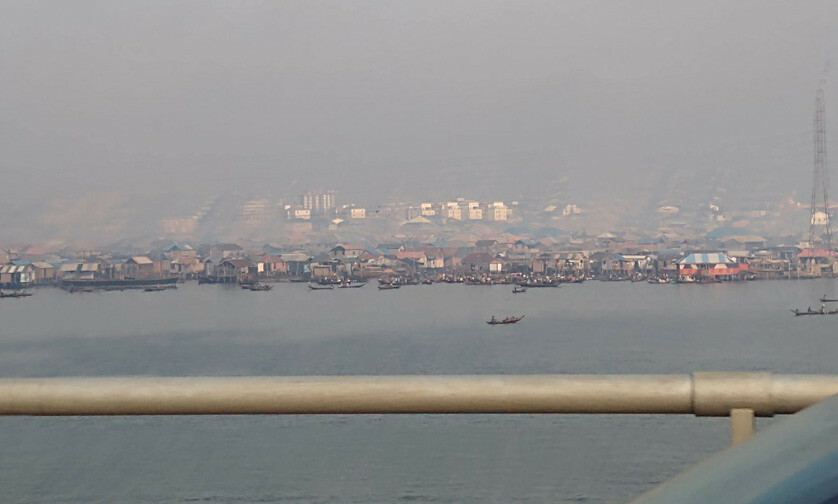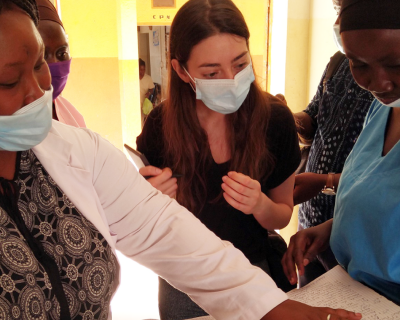Santé maternelle et néonatale dans les zones urbaines

Objectif
Nous coopérons avec des partenaires du monde entier pour comprendre comment les femmes recherchent des soins, quelles sont les capacités des établissements de santé qui leur fournissent des soins, et quels sont les résultats en matière de santé qui résultent de cette interaction. L'objectif de la recherche est d'améliorer le taux de survie et le bien-être des mères et de leurs nouveau-nés, grâce à une compréhension approfondie des communautés locales et des décideurs, ainsi qu'à un engagement avec eux.
Financement
Cette étude a été financée par les fonds internes de l'Institut de Médecine Tropicale, soutenus par le Département de l'Economie, de la Science et de l'Innovation du Gouvernement flamand, et par le cinquième accord-cadre entre l'IMT et la Direction Générale de la Coopération au Développement et de l'Aide Humanitaire belge (DGD).
Dr Benova est partiellement financée par la Fondation pour la Recherche - Flandre (FWO) dans le cadre de sa bourse postdoctorale senior.
Équipe de recherche
Contact
Dr. Lenka Benova
✉ lbenova@itg.be


Voir les publications
We participated in the OnTime study of travel time to obstetric care in Nigeria.
Geographical accessibility to functional emergency obstetric care facilities in urban Nigeria (The Lancet Global Health, 2024)
Developing policy-ready digital dashboards of geospatial access to emergency obstetric care (Health and Technology, 2024)
Socio-spatial equity analysis of relative wealth index and emergency obstetric care accessibility in urban Nigeria (Communications Medicine, 2024)
Interactive dashboard showing travel time access to Emergency Obstetric Care (EmOC) facilities (2024)
A geospatial database of close-to-reality travel times to obstetric emergency care in 15 Nigerian conurbations (Scientific data, 2023)
We are exploring the urbanicity gradient and what it means for maternal and newborn health in sub-Saharan Africa.
Advancing the frontiers of geographic accessibility to healthcare services (Communications Medicine, 2023)
Exploring the urban gradient in population health (BMJ Global Health, 2023)
Neonatal and perinatal mortality in the urban continuum: a geospatial analysis of the household survey, satellite imagery and travel time data in Tanzania (BMJ Global Health, 2022)
Our stakeholder analysis of maternal health in the city of Antwerp (Belgium) is now available.
Maternal Healthcare in Antwerp: A Stakeholder Analysis (Zenodo, 2022)
We co-authored a commentary calling for more extensive multisectoral approaches to addressing global urban maternal and perinatal health inequities, which includes case studies from Rotterdam and Kampala. It is available in the journal Cities & Health.
Multisectoral approaches to addressing global urban maternal and perinatal health inequities (Cities & Health, 2023)
Our study of 22 large African cities included nearly 20,000 women. We concluded that few cities achieved good performance across the three services within the maternal continuum of care (antenatal, childbirth and postnatal care). Most cities showed inconsistent levels of maternal care utilisation and content across the continuum of care. Cotonou and Accra relatively showed the best performance and Nairobi and Ndjamena the worst.
A tale of 22 cities: utilisation patterns and content of maternal care in large African cities (BMJ Global Health, 2022)
The objective of this study was to understand levels of neonatal mortality in 21 countries of Sub-Saharan Africa and compare urban and rural areas. We also looked at Tanzania in particular, because its mortality rate among newborns is higher in urban areas compared to rural.
Our mixed methods study of six maternity wards in urban areas of four countries (Guinea, Nigeria, Uganda and Tanzania) during the first year of the COVID-19 pandemic provided important insights into the way in which use and provision of care in referral hospitals in cities was affected by disruptions.
A mixed-methods study of maternal health care utilisation in six referral hospitals in four sub-Saharan African countries before and during the COVID-19 pandemic (BMJ Global Health, 2022)
‘We are not going to shut down, because we cannot postpone pregnancy’: a mixed-methods study of the provision of maternal healthcare in six referral maternity wards in four sub-Saharan African countries during the COVID-19 pandemic (BMJ Global Health, 2022)
We participated in a study of travel time to obstetric care and patterns of referral between health facilities in Lagos Nigeria.
Patterns, travel to care and factors influencing obstetric referral: Evidence from Nigeria's most urbanised state (Social Science & Medicine, 2021)
Influence of travel time and distance to the hospital of care on stillbirths: a retrospective facility-based cross-sectional study in Lagos, Nigeria (BMJ Global Health, 2021)
Critical comparative analysis of data sources toward understanding referral during pregnancy and childbirth: three perspectives from Nigeria (BMC Health Services Research, 2021)
An assessment of geographical access and factors influencing travel time to emergency obstetric care in the urban state of Lagos, Nigeria (Health Policy and Planning, 2021)
“In cities, it’s not far, but it takes long”: comparing estimated and replicated travel times to reach life-saving obstetric care in Lagos, Nigeria (BMJ Global Health, 2021)
Voir la recherche dans les médias
Baby deaths in Tanzania: being born in a city no longer increases their chances of survival (The Conversation, 2023)
Infants born in cities ‘twice more likely to die’ (SciDev.Net, 2022)
Lagos traffic creating 'life or death' situations for women trying to reach hospital – report (The Guardian, 2021)

Partenaires DGD
Centre de Recherche en Reproduction Humaine et en Démographie (CERRHUD)
École de Santé Publique de l'Université de Lubumbashi (ESP/UNILU)
Centre d’excellence africain pour la prévention et le contrôle des maladies transmissibles (CEA-PCMT)
Autres partenaires
OnTIME Consortium – Femmes enceintes accédant à des soins obstétriques
Thèmes de recherche
Santé Sexuelle et Reproductive
Plus d'infoPartager le projet sur

